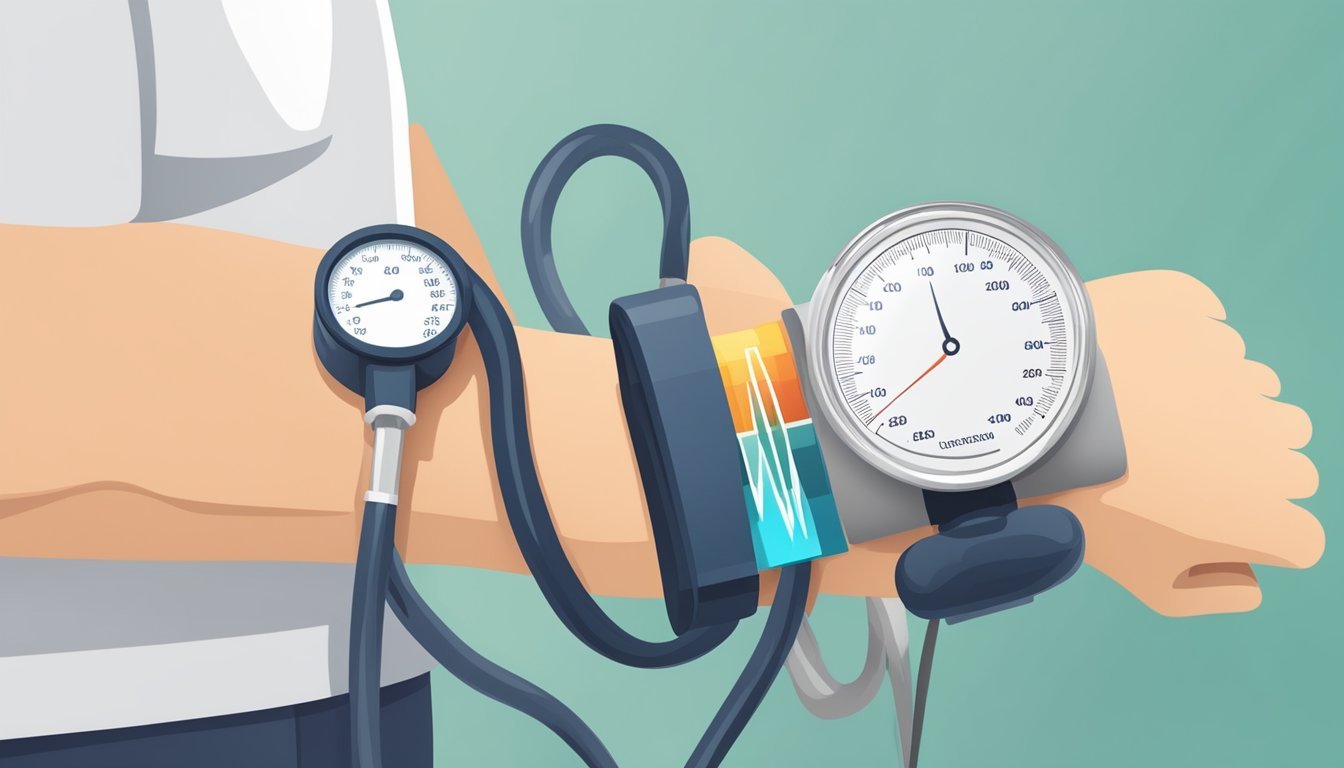How Does the Flexitarian Diet Impact Blood Pressure?
Unveiling the Health Effects
The Flexitarian diet, a term that marries 'flexible' and 'vegetarian', has gained traction as a moderate approach to eating that can positively influence health. This lifestyle emphasizes plant-based foods while allowing for occasional meat and animal products, and is touted for its versatility and less restrictive nature. The impact of the Flexitarian diet on health parameters, particularly on blood pressure, has become an area of interest for both healthcare professionals and individuals looking to maintain or improve their health.
Studies suggest that the Flexitarian diet's high intake of fruits, vegetables, legumes, and whole grains — which are rich in fiber, antioxidants, and essential nutrients — contributes to better overall diet quality. These components are known to play a role in cardiovascular health, and there is emerging evidence suggesting that this way of eating may offer benefits for the management of blood pressure.
Adoption of the Flexitarian lifestyle could lead to improved metabolic markers, including a reduction in the risk of hypertension, which is a major factor for cardiovascular diseases. By focusing on plant proteins and reducing the consumption of red and processed meats, individuals may experience lower blood pressure levels, although the extent of the impact varies based on individual dietary patterns and the degree of adherence to the diet.
Understanding the Flexitarian Diet
The Flexitarian Diet merges the words "flexible" and "vegetarian," defining an approach that embraces mostly plant-based foods while allowing meat and other animal products in moderation. This diet is considered to be a semi-vegetarian or vegetarian-plus style of eating, prioritizing vegetables, fruits, whole grains, and plant proteins such as beans and legumes.
Main Components of Flexitarian Diet:
A majority of plant-based foods
Occasional inclusion of meat, fish, and poultry
Regular intake of eggs and dairy products
One should note that this diet is not rigid; instead, it allows individuals to reduce meat consumption without eliminating it completely, thereby making it a practical and sustainable choice for those who are not ready to commit to a full vegan or vegetarian lifestyle.
Protein Sources on a Flexitarian Diet:
Plant Proteins: Beans, peas, lentils, nuts, and seeds.
Animal Proteins: Poultry, fish, eggs, and dairy products – in limited amounts.
The inclusion of eggs and dairy supplies a good source of protein as well as essential nutrients like calcium and vitamin D. Additionally, the diet encourages the use of various oils, herbs, and spices to diversify flavor profiles, while reinforcing its plant-forward philosophy.
The Flexitarian Diet is fundamentally about balance and moderation, with the understanding that even occasional consumption of animal products can fit into a health-conscious lifestyle.
Benefits of a Flexitarian Diet on Health
The flexitarian diet has been associated with an array of health benefits, particularly in regard to chronic disease prevention and management. These benefits are rooted in the diet’s emphasis on plant-based foods while allowing for moderate consumption of animal products.
Weight Management and BMI
Adopting a flexitarian diet often leads to a lower body weight and Body Mass Index (BMI). Studies highlight that plant-based diets are effective in weight management due to their lower calorie density and higher fiber content, which enhances satiety.
Cardiovascular Health and Blood Lipids
Individuals following a flexitarian diet may see improvements in cardiovascular health. This dietary pattern can lead to favorable changes in blood lipids, including reductions in total cholesterol, which is a key factor in reducing cardiovascular risk.
Blood Pressure and Stroke Risk
A flexitarian diet has been linked to lower high blood pressure, a major risk factor for stroke. The diet’s rich content in fruits, vegetables, and whole grains, combined with lower meat intake, contributes to this protective effect.
Diabetes and Blood Sugar Control
Evidence suggests that a flexitarian diet can improve blood sugar control and may reduce the risk of developing type 2 diabetes. The fiber and micronutrients in plant-based foods play a significant role in maintaining healthy blood sugar levels.
Cancer Risk and Dietary Patterns
While research is ongoing, there are indications that a flexitarian diet could be associated with a lower risk of certain types of cancer. This may be due to lower meat intake and increased consumption of fruits, vegetables, and other plant-based foods that offer protective benefits.
Nutritional Aspects of Flexitarianism
The flexitarian diet balances vegetarian sources of nutrients with occasional meat and fish, providing variety in protein, vitamins, and fats.
Protein Sources and Quality
Flexitarianism promotes a high intake of plant proteins like beans, peas, and lentils, which are essential for maintaining muscle health and function. These sources, including black beans and quinoa, are packed with fiber and are low in saturated fat. They provide a slower, more sustained release of energy compared to animal proteins. However, moderate consumption of animal products ensures an adequate intake of all essential amino acids and nutrients like vitamin B12 and zinc, which are less abundant in a plant-based diet.
Vitamins and Minerals
This diet is rich in vitamins and minerals, particularly those found abundantly in fruits, vegetables, and whole grains. For instance, calcium—important for bone health—can be obtained from dairy or fortified plant-based alternatives. Iron absorption is enhanced by vitamin C, which is plentiful in a diet emphasizing a variety of plant foods. The inclusion of eggs and dairy also contributes to vitamin D levels, crucial for calcium absorption and bone health.
Fats and Cholesterol
The flexitarian diet generally leads to lower cholesterol levels due to its emphasis on plant-based foods, which contain no cholesterol. Heart-healthy fats such as omega-3 fatty acids are obtained from fish, along with olive oil and avocados. These unsaturated fats can help to maintain a lower blood pressure when they replace saturated fats typically found in red meat and processed foods.
Impact on Blood Pressure
The Flexitarian diet is associated with potential benefits for blood pressure management. Studies indicate reduced systolic and diastolic blood pressure among individuals adhering to this diet. Systolic blood pressure, the top number indicating the pressure in arteries when the heart beats, and diastolic blood pressure, the bottom number indicating the pressure when the heart is at rest, are both crucial markers for cardiovascular health.
Researchers have noted a correlation between flexitarian diets and improved markers of metabolic health, which includes blood pressure regulation. The diet's emphasis on plant-based foods while allowing for moderate consumption of meat products can lead to an overall lower sodium intake—an important aspect in blood pressure control.
In addition to lowering blood pressure, there is evidence suggesting that a Flexitarian diet may also reduce arterial stiffness. Arterial stiffness is a risk factor for heart disease, as it forces the heart to work harder to pump blood.
A diet abundant in fruits, vegetables, and whole grains, with reduced meat consumption, mirrors the principles of known dietary interventions like the Dietary Approaches to Stop Hypertension (DASH) diet, which has been shown to have a significant impact on reducing blood pressure. The DASH diet notably exerts a greater effect on systolic blood pressure reduction, with systolic pressure being a predictor of cardiovascular risk.
It is important for individuals considering the Flexitarian diet to understand these potential health benefits, especially those with a predisposition to, or currently managing, hypertension or heart disease. However, individual results may vary, and dietary changes should be discussed with a healthcare provider.
Lifestyle Factors Influencing Effects
Adopting a Flexitarian diet can be beneficial for blood pressure management, yet it is most effective when integrated with positive lifestyle choices. These choices encompass a range of factors which exert significant influence on the overall health benefits associated with this diet.
Physical Activity and Exercise
Physical activity complements a Flexitarian diet in reducing blood pressure. Regular exercise, such as aerobic activities, strength training, and flexibility exercises, enhance cardiovascular health. The American Heart Association recommends at least 150 minutes of moderate-intensity aerobic activity or 75 minutes of vigorous aerobic activity per week, combined with muscle-strengthening activities on two or more days for optimal health. Consistency in exercise routines is key, as it sustains the benefits for blood pressure and metabolic health.
Types of Recommended Physical Activities:
Aerobic (Brisk walking, swimming, cycling)
Anaerobic (Weightlifting, sprinting)
Flexibility (Yoga, stretching)
Smoking and Alcohol Consumption
Smoking cessation and moderated alcohol consumption are vital in maximizing the health effects of a Flexitarian diet on blood pressure. Smoking tobacco significantly elevates blood pressure and damages blood vessels, counteracting the benefits of a healthy diet. Steering clear of smoking is essential for cardiovascular health.
In terms of alcohol intake, moderate consumption aligns with a blood pressure-friendly lifestyle. The Dietary Guidelines for Americans suggest, for those who consume alcohol, up to one drink per day for women and up to two drinks per day for men. Heavy drinking can lead to an increase in blood pressure and may nullify the positive impacts of dietary choices.
Recommendations for Tobacco and Alcohol:
Avoid smoking tobacco
Limit alcohol (if consumed) to moderate levels
Comparison with Other Diets
The impact of the Flexitarian diet on blood pressure is significant when compared to other dietary patterns. Its plant-based nature with limited meat intake appears to offer measurable benefits.
Omnivorous Diet
Individuals adhering to an Omnivorous Diet, which includes both plant and animal products, may not experience the same degree of blood pressure benefits as those on a Flexitarian diet. Studies suggest that the higher intake of red and processed meats often associated with omnivorous diets can lead to less favorable outcomes in terms of diet quality and blood lipid profiles.
Vegetarian and Vegan Diets
Vegetarian and Vegan Diets are known for their beneficial effects on blood pressure. However, they are more restrictive, eliminating all meat and, in the case of veganism, all animal products. The incorporation of small amounts of meat in a Flexitarian diet, while still focusing on plant-based foods, offers a middle ground that can still support improved metabolic health markers and blood pressure.
Mediterranean Diet
The Mediterranean Diet also emphasizes plant-based foods but includes fish and poultry, which may offer similar benefits for blood pressure control. Comparison with the Flexitarian diet indicates that both prioritize nutrition and diet quality with an emphasis on whole foods, but the Flexitarian diet allows for a personalized approach in terms of meat consumption while potentially lowering the risk of hypertension.
Research and Studies
The examination of the Flexitarian diet's impact on blood pressure is supported by diverse research methodologies, including cross-sectional studies, randomized controlled trials (RCTs), and observational studies. These studies provide insights into the potential connection between a Flexitarian dietary pattern and blood pressure metrics.
Cross-Sectional Studies
Cross-sectional studies have identified a positive association between Flexitarian dietary patterns and blood pressure reduction. For instance, a review of 25 studies revealed benefits for body weight and metabolic health which indirectly influence blood pressure. These studies provide snapshots of data that suggest the inclusion of semi-vegetarian diets may be beneficial in managing hypertension.
Randomized Controlled Trials
RCTs are the gold standard for examining causality. Evidence from such trials suggests that adopting vegetarian and semi-vegetarian diets, akin to Flexitarian practices, can lead to a significant reduction in blood pressure. In a cumulative analysis, the effects on systolic and diastolic blood pressure exhibited declines of −3.07 mm Hg and −1.81 mm Hg, respectively, when a dietary intervention was implemented.
Observational Studies and Longitudinal Research
Observational studies, including longitudinal research like the Adventist Health Study-2, help in understanding the long-term effects of dietary patterns on health outcomes. These studies have highlighted that Flexitarian diets, characterized by occasional meat consumption but predominantly plant-based, can contribute to more favorable cardiovascular risk profiles. This includes improved blood lipid profiles which are key biomarkers for heart health and blood pressure regulation.
Public Health Implications
The Flexitarian diet, as a semi-vegetarian approach, significantly impacts public health, particularly in the context of managing blood pressure, aligning with dietary guidelines, and supporting environmental sustainability.
Dietary Guidelines and Recommendations
Health authorities underscore the importance of diets rich in fruits, vegetables, whole grains, and lean proteins for maintaining optimal blood pressure levels. The Flexitarian diet supports these recommendations by limiting meat consumption and encouraging an intake of plant-based foods, which have been associated with lower systolic and diastolic blood pressure measurements. Evidence suggests that a dietary approach, similar to the Dietary Approaches to Stop Hypertension (DASH), can reduce blood pressure, thereby aligning the Flexitarian diet with public health guidelines.
Sustainability and Environmental Impact
The adoption of the Flexitarian diet holds substantial promise for environmental sustainability. Reduced meat consumption diminishes the carbon footprint, conserving natural resources and reducing greenhouse gas emissions. Public health policies advocating for sustainable diets often highlight the benefits of a plant-centric dietary pattern, which the Flexitarian diet exemplifies. Encouraging this dietary shift can lead to a lower environmental impact and support long-term ecological public health goals.
Challenges and Considerations
Embracing a flexitarian diet can influence blood pressure, though individuals should be mindful of several challenges and considerations.
Processed Foods: While reducing meat intake, one might inadvertently increase consumption of processed foods as meat substitutes. These often contain high amounts of sodium, which can negate the benefits of a plant-based component by raising blood pressure.
Sweets and Sugars: Flexitarians sometimes replace meat with foods high in sugar, leading to weight gain. Excessive sugar can contribute to obesity, insulin resistance, and metabolic syndrome, all known cardiovascular risk factors that can adversely affect blood pressure.
Nutritional Balance: It is crucial to maintain a balanced intake of macro and micronutrients. Overemphasis on particular food groups can lead to deficiencies or excesses, impacting overall health and potentially causing changes in blood pressure.
Prospective flexitarians should consider:
Limiting sweets and added sugars to avoid spikes in insulin.
Choosing unprocessed or minimally processed foods.
Monitoring physical activity levels to complement dietary changes.
Risk Factor Consideration for Flexitarian Diet Metabolic Syndrome Monitor carbohydrate intake and ensure a balanced diet. Obesity Balance caloric intake with physical activity for weight control. Mortality Whole foods plant-based aspects of the diet may reduce mortality.
Physical Activity: Regular physical activity is essential to amplify the diet's positive effects on blood pressure and should not be overlooked.
Cardiovascular Risk Factors: While the flexitarian diet is associated with lower risk, one should not solely rely on dietary changes. Regular health screenings and an overall healthy lifestyle are critical to managing blood pressure and other risk factors effectively.







